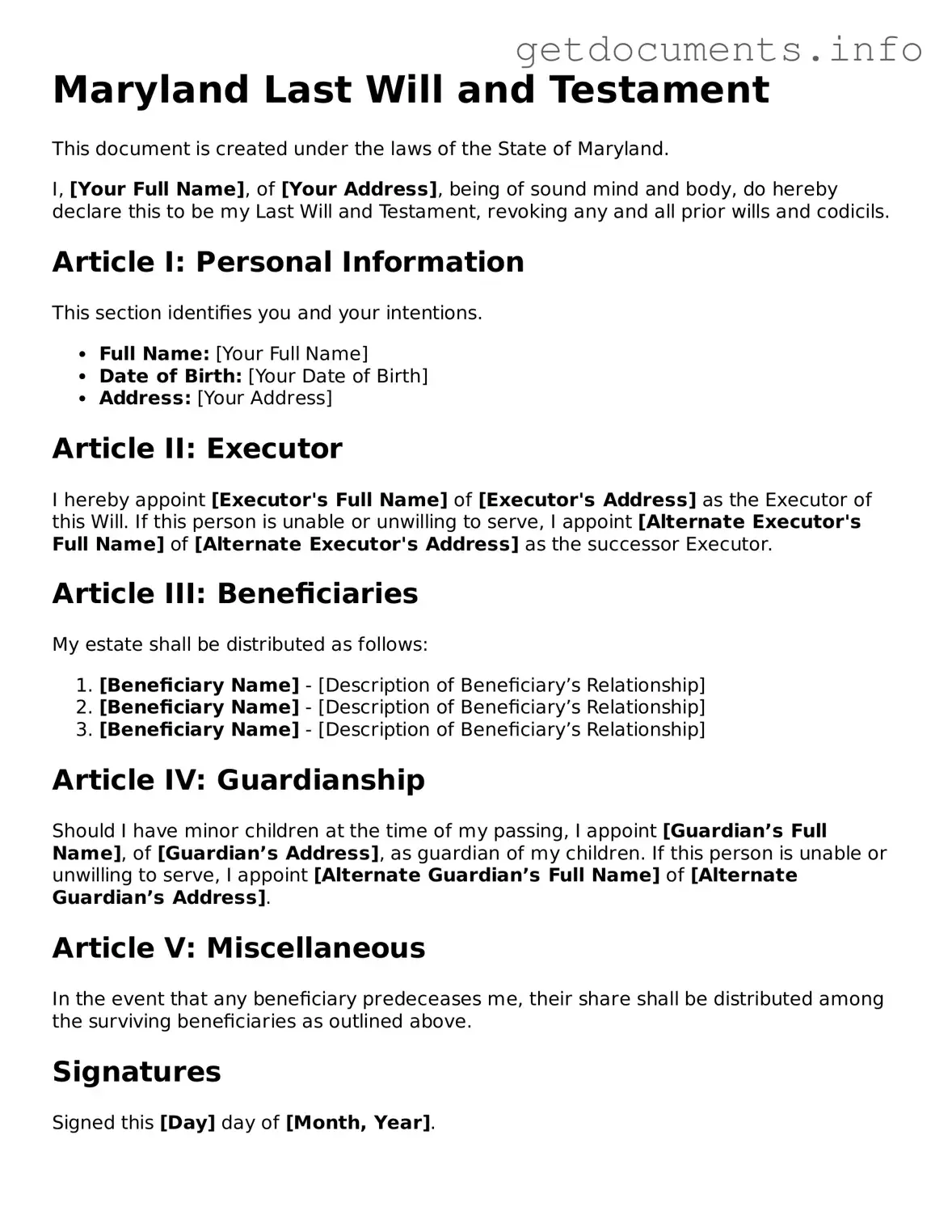Free Last Will and Testament Template for Maryland
A Maryland Last Will and Testament form is a legal document that outlines how a person's assets and affairs should be handled after their death. This form ensures that your wishes are honored and provides clarity to your loved ones during a difficult time. Take the important step of preparing your will today by clicking the button below.
Access Last Will and Testament Editor

Free Last Will and Testament Template for Maryland
Access Last Will and Testament Editor
Got places to be? Complete the form fast
Fill out Last Will and Testament online and avoid printing or scanning.
Access Last Will and Testament Editor
or
⇩ PDF File
